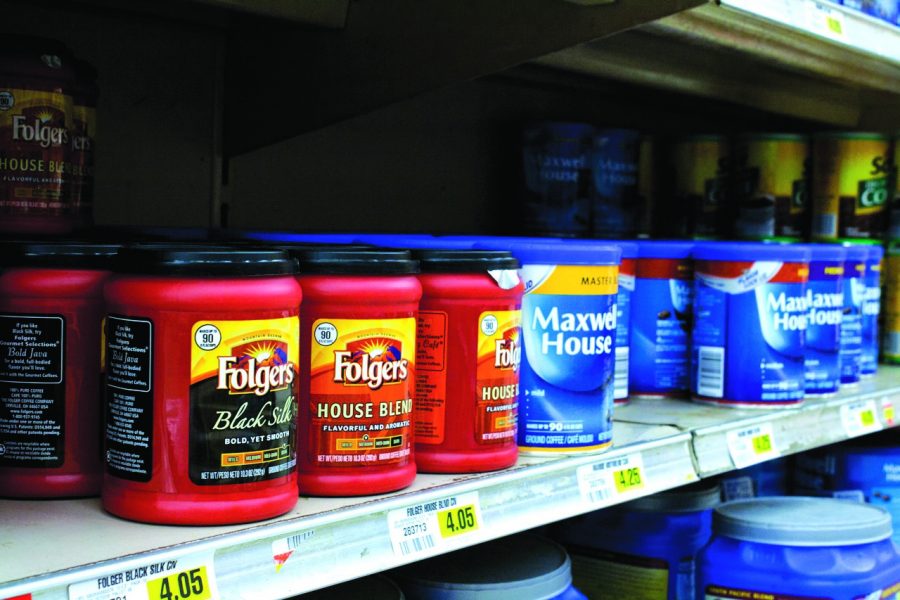Rising costs affect local businesses
March 17, 2011
The rising costs of raw materials, increased delivery charges and a dwindling consumer market savaged by high unemployment rates and stagnant wages have hurt small businesses across the country.
In response to narrowing profit margins many of them are faced with the options of absorbing the costs or raising prices, potentially driving away many customers operating on a tight budget.
Many local restaurants in Florence have survived based on their loyal customer base, which often includes many UNA students who stick with their favorite eateries during the good times and the bad.
John Cartwright, owner and manager of Rivertown Coffee Co., said that his profits have declined about 15 percent during the past year, but the change is not enough to notice on a day-to-day basis.
“Gourmet coffee is a luxury item, but it is still a staple for many people,” said Cartwright. “They may not go out and buy a new car, but they’ll still buy a cup of coffee. They just may have to cut back on how many times they come in a week.”
Cartwright has seen a steady increase in the prices of nearly all staple items he purchases, but the price of coffee has increased disproportionately due to rising shipping costs for imported goods. The average exchange rate of coffee reached $2.46 per pound last month, the highest it’s been since 1997.
Cartwright said he experienced a slowdown in customer volume last winter, but business has picked up since then. He has had to consider raising prices, but he is waiting to see how much business the shop gets during the summer.
Melissa McGraw, co-owner and manager of McGraw’s Coffee House, said her business has absorbed rising costs without altering prices so far in order to maintain a loyal customer base that includes many UNA students living on a budget. According to McGraw, the shop has not raised its coffee prices during the five years it has been open, and food prices have only been raised once.
“It’s important to be consistent,” said McGraw. “A lot of our customers come through the line with exact change in their hands.”
Delivery charges have played a major role in draining profits for many businesses due to the rising cost of gasoline. Jamie Statom, general manager of Montagu’s and Frostbite Frozen Treats, said that he has kept prices stable by shopping around for the most cost-effective supplier.
Statom recently switched to a new supplier, and one of the deciding factors was that the current supplier doesn’t charge a fuel fee in addition to delivery charges.
“It’s good to be loyal to your suppliers, but in the end that may mean charging more,” said Statom. “If it comes down to choosing between loyalty to suppliers and customer service, you have to choose customer service to keep prices down.”
Chris Garner, owner and manager of Wing Shack, opened his restaurant in early 2010 when the economy was already in a recession. Many small businesses nationwide that opened up last year have folded, but Wing Shack has managed to stay afloat due to a growing customer base.
“Profits have gone down on the whole,” said Garner. “We’ve seen increases in prices mainly due to gas, but we’ve actually seen reductions in the price of chicken.”
Unlike many foods, poultry has been steadily declining in price over the past few months, but the industry is anticipating a reverse in the trend due to the rising cost of grains that go into chicken feed.
Tourway Pancake House on Florence Boulevard is a place many UNA students visit late at night to study and order coffee. Owner and manager Shirley Young said her business has been hurting during the past two years due to the recession, and produce prices and delivery charges have compounded the problem.
The restaurant recently became a non-smoking establishment, following a trend among area diners, but Young has had to allow smoking once again in order to attract more customers. She may still have to make adjustments to the prices.
“A lot of places all over have had to change their menu prices,” said Young. “I expect I may have to during the next few weeks.”
Trowbridge’s Ice Cream and Sandwich Bar in downtown Florence has survived the fluctuations in the economy since 1918. Owner Don Trowbridge said that he has experienced a 17 percent increase in the cost of food products during the past few weeks and he pays up to $15 in delivery charges every day.
According to Trowbridge, customer volume has been down 25 percent during the past year and he may have to change prices soon. He is currently installing a debit card machine, and hopes that will attract more customers.











